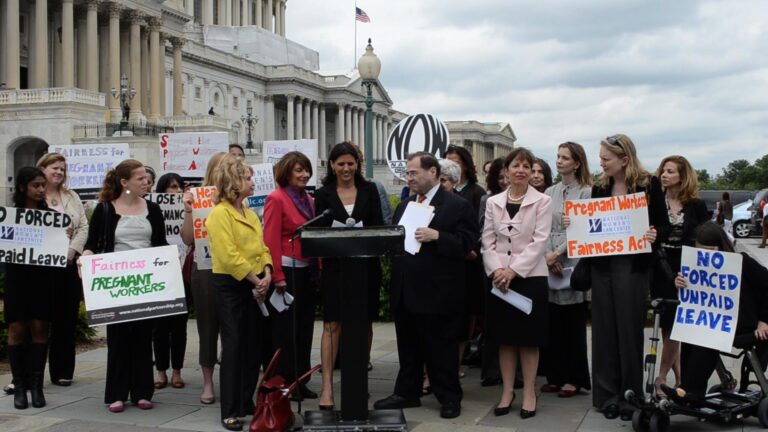
Alex Blutman is a student at Harvard Law School and a member of the Labor and Employment Lab.
Welcome to The Strike Zone, a new biweekly feature dedicated to labor and employment developments in the world of sports. To kickoff this initial installment, we turn first to the National Football League (“NFL”).
In response to a concerted effort by the National Football League Players Association (“NFLPA”) to encourage players to forego voluntary offseason workouts, some NFL teams have implemented changes to their offseason schedules. The modifications, which mostly involve the cutting down of on-field practice time, come as the result of discussions between players and coaches and are meant to persuade players to attend the offseason programs.
The offseason has long been a sticking point in collective bargaining between the league and union. The NFL wanted to make the offseason program mandatory in the 2011 collective bargaining agreement (“CBA”)—the league failed, and save for mandatory minicamps, offseason team activities remain voluntary, yet players often feel extraordinary pressure to attend supposedly “optional” programs. The pandemic, which forced the NFL to completely abandon offseason workouts last season, has reinvigorated the players’ case against the voluntary programs. Through the NFLPA, players from 21 of the 32 NFL teams have announced their intent to skip offseason workouts this season.
The NFLPA is attempting to leverage the altered circumstances brought on by the pandemic to advocate for long-term changes to the league’s offseason program. Union President JC Tretter has argued that last year’s lack of offseason activities did not frustrate teams’ preparation for the season while players enjoyed improved physical and mental well-being. “There is no reason for us to ever return to the previous offseason program,” Tretter said in his statement on the NFLPA’s website. The current NFL CBA is effective through the 2030 season, so any tangible modifications to the offseason program are possible, for the time being, only through pressure placed on and discussions with individual teams. The recent “holdouts” are meant to induce teams to incorporate player feedback in structuring their offseason activities going forward. “Every single player, especially the leaders on these teams, they’re now talking to these teams on their own and saying, ‘If it’s truly voluntary, this is what it needs to look like in order for us to show up,’” explained NFLPA executive board member Michael Thomas.
Meanwhile, the NFL and NFLPA prevailed in a high-profile suit over disability benefits brought by retired players Aveion Cason and Don Majkowski. In the proposed class action suit, the plaintiffs took issue with two provisions introduced in the NFL CBA executed last year that they argued would enact a devastating loss of benefits for disabled retirees. Whereas under the previous CBA retired players became eligible for total and permanent disability benefits after a Social Security determination of disability, the new CBA requires beneficiaries meet a more comprehensive “whole-person” appraisal standard. The 2020 CBA also added a new Social Security offset that will reduce the money retirees receive in government disability income.
U.S. District Judge for the District of Columbia Trevor McFadden dismissed the suit without prejudice. Judge McFadden ruled that that the plaintiffs failed to allege a sufficient injury, reasoning that Cason and Majkowski may still qualify for benefits under the “whole-person” evaluation process set to take effect in 2024. Judge McFadden also rejected the plaintiffs’ claim that the new Social Security offset rescinds benefits promised under the 2011 CBA, explaining that the retirees’ disability plan is not subject to lifetime vesting and that the contractual obligations ceased when the previous bargaining agreement was terminated. Neither was Judge McFadden persuaded by the plaintiffs’ request for a revote on the 2020 CBA, stressing that no party involved in the ratification vote, particularly active players, has raised a complaint. The case, however, has seemingly pressured the NFL and NFLPA to reconsider the “whole-person” standard and amend the CBA to delay the implementation of the Social Security offset.
Earlier this month, 15-year-old soccer prodigy Olivia Moultrie sued the National Women’s Soccer League (“NWSL”), arguing that the league’s 18-year-old minimum eligibility requirement violates federal antitrust law. The complaint is reminiscent of Maurice Clarett’s 2003 challenge to a similar rule in the NFL. The NWSL argued that the Norris LaGuardia Act should preclude the court from approving Moultrie’s request for an injunction (unless special procedures are followed) as a court order would undermine ongoing negotiations between the league and the union over the upcoming CBA. In a preliminary order, the District Court determined that the Norris LaGuardia Act’s anti-injunction provision does not apply because an injunction would not interfere with the ability of the union to advocate for its members or negotiate terms or conditions of employment with the league. Although the NWSL may fall back on the non-statutory labor exemption, which relieves from antitrust scrutiny terms governing players’ wages, hours, and other working conditions that are agreed to by a league and players association, or its argument that the exclusive recognition conferred on the union by the National Labor Relations Act bars Moultrie’s individual claims, the ruling likely means the league will have to defend its rule on purely antitrust grounds. Although Major League Soccer and men’s and women’s professional soccer leagues in Europe have no age requirement, such rules are commonplace in major American professional sports.
A team for which Moultrie may one day play is also embroiled in a longstanding legal battle. On May 19, representatives of U.S. Soccer and members of the U.S. women’s national soccer team (“USWNT”) met in an attempt to settle the players’ equal pay discrimination claims through a court-scheduled mediation. The “assessment conference” with Circuit Mediator Steven J. Saltiel is part of the appellate court’s typical process for encouraging settlement and avoiding the actualization of an appeal, which the USWNT lodged in early April after U.S. District Judge R. Gary Klausner approved a partial settlement of the team’s claims over unequal working conditions. The original equal pay lawsuit was filed in March 2019. Judge Klausner had granted summary judgment to U.S. Soccer on the players’ claims of discrimination in pay based on sex, finding that differences in pay structures between the men’s and women’s national teams were the result of separate labor agreements each team negotiated with U.S. Soccer.








Daily News & Commentary
Start your day with our roundup of the latest labor developments. See all
July 6
Municipal workers in Philadelphia continue to strike; Zohran Mamdani collects union endorsements; UFCW grocery workers in California and Colorado reach tentative agreements.
July 4
The DOL scraps a Biden-era proposed rule to end subminimum wages for disabled workers; millions will lose access to Medicaid and SNAP due to new proof of work requirements; and states step up in the noncompete policy space.
July 3
California compromises with unions on housing; 11th Circuit rules against transgender teacher; Harvard removes hundreds from grad student union.
July 2
Block, Nanda, and Nayak argue that the NLRA is under attack, harming democracy; the EEOC files a motion to dismiss a lawsuit brought by former EEOC Commissioner Jocelyn Samuels; and SEIU Local 1000 strikes an agreement with the State of California to delay the state's return-to-office executive order for state workers.
July 1
In today’s news and commentary, the Department of Labor proposes to roll back minimum wage and overtime protections for home care workers, a federal judge dismissed a lawsuit by public defenders over a union’s Gaza statements, and Philadelphia’s largest municipal union is on strike for first time in nearly 40 years. On Monday, the U.S. […]
June 30
Antidiscrimination scholars question McDonnell Douglas, George Washington University Hospital bargained in bad faith, and NY regulators defend LPA dispensary law.